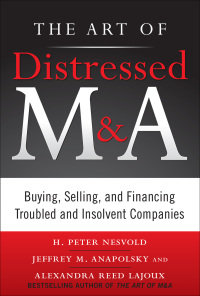Question
The monetary sector has just responded with impressive changes, although the real monetary effects in the world are not yet apparent. The US securities exchange
The monetary sector has just responded with impressive changes, although the real monetary effects in the world are not yet apparent. The US securities exchange hit the machine several times in ten days in March 2020. The breaker was only published once after it was initiated in 1987, in 1997. In addition to the US collapse, European and Asian financial exchanges have plummeted. In its most distressing day since 1987, the UK's prime list FTSE plummeted more than 10 percent on 12 March 2020. 2 In December 2019, Japan's financial exchange plummeted over 20% of its peak amount. 3 Central banks and experts responded rapidly by placing their arrangement tools on the market. For example, the Fed announced a loan cost strategy of zero percent and a quantitative easing (QE) program at $ 700 billion on 15 March 2020. Just eight days after the negative reactions to the surveillance arrangement, the FED announced an unbounded QE policy. While most securities exchanges are rebounding at the earliest stage of the pandemic, there is still plenty of vulnerability.
Simple truths about the pandemic in January 2020, coronavirus had been brought to the attention of the world. The rapid spread of the infection and the increasing number of cases have forced the Chinese government to respond quickly. The lock-out in the entire Wuhan city shocked the entire world on 23 January 2020, later on, a strong Chinese government strategic intercession. More than a week later, the WHO called China's episode a general global wellness issue (PHEIC). At the time there were 7,711 absolute confirmed cases, just 83 cases in 18 non-China nations. 4
South Korea was subsequently affected by a large COVID-19 inflammation, strongly supported by Iran. South Korea needed several weeks to go from 31 to more than 1,000 cases; and Iran had 12 days to go from zero to over 1,000. It needed 12 days. The affirmed cases are drawn up over the long run for the six influenced nations using the data from the John Hopkins Coronavirus Resource Center (see Fig. 1 ). In March, though China and South Korea are largely unleashed, the attention has been on Europe and the United States. Italy has the highest casualty rate with the US driving the whole number of reported incidents. The monetary industries around the world have started to fall in tune with the WHO's real declaration of a worldwide pandemic. For example, with the S&P 500 is approved, it hit its highest point on 19 February 2020 (3386.15) but fell on 23 March 2020 to 2237.40, dropping by more than 30% in a single month. In February the normal difference in daily returns was 0.0069; in March the number increased to 0.0268.
South Korea was subsequently affected by a large COVID-19 inflammation, strongly supported by Iran. South Korea needed several weeks to go from 31 to more than 1,000 cases; and Iran had 12 days to go from zero to over 1,000. It needed 12 days. The affirmed cases are drawn up over the long run for the six influenced nations using the data from the John Hopkins Coronavirus Resource Center (see Fig. 1 ). In March, though China and South Korea are largely unleashed, the attention has been on Europe and the United States. Italy has the highest casualty rate with the US driving the whole number of reported incidents. The monetary industries around the world have started to fall in tune with the WHO's real declaration of a worldwide pandemic. For example, with the S&P 500 is approved, it hit its highest point on 19 February 2020 (3386.15) but fell on 23 March 2020 to 2237.40, dropping by more than 30% in a single month. In February the normal difference in daily returns was 0.0069; in March the number increased to 0.0268.
- What question or problem is the author addressing?
- What are the key theories, models, and methods? Does the research use established frameworks or take an innovative approach?
- What are the results and conclusions of the study?
- How does the publication relate to other literature in the field? Does it confirm, add to, or challenge established knowledge?
- How does the publication contribute to your understanding of the topic? What are its key insights and arguments?
- What are the strengths and weaknesses of the research?
Step by Step Solution
There are 3 Steps involved in it
Step: 1

Get Instant Access to Expert-Tailored Solutions
See step-by-step solutions with expert insights and AI powered tools for academic success
Step: 2

Step: 3

Ace Your Homework with AI
Get the answers you need in no time with our AI-driven, step-by-step assistance
Get Started


